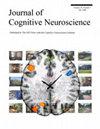Neural Correlates of Retrieval Success and Precision: A Functional Magnetic Resonance Imaging Study
IF 3.1
3区 医学
Q2 NEUROSCIENCES
引用次数: 0
Abstract
Prior studies examining the neural mechanisms underlying retrieval success and precision have yielded inconsistent results. Here, the neural correlates of success and precision were examined with a memory task that assessed precision for spatial location. A sample of healthy young adults underwent fMRI scanning during a single study–test cycle. At study, participants viewed a series of object images, each placed at a randomly selected location on an imaginary circle. At test, studied images were intermixed with new images and presented to the participants. The requirement was to move a cursor to the location of the studied image, guessing if necessary. Participants then signaled whether the presented image had been studied. Memory precision was quantified as the angular difference between the studied location and the location selected by the participant. A precision effect was evident in the left angular gyrus, where BOLD activity covaried with location accuracy. In addition, multivoxel pattern analysis revealed a significant item-level reinstatement effect in the angular gyrus for high-precision trials. There was no evidence of a retrieval success effect in this region. BOLD activity in the hippocampus was insensitive to both success and precision. These findings are partially consistent with prior evidence that success and precision are dissociable features of memory retrieval.检索成功率和精确度的神经相关性:功能磁共振成像研究
之前对检索成功率和精确度的神经机制进行的研究得出的结果并不一致。本文通过一项评估空间位置精确度的记忆任务来研究成功率和精确度的神经相关性。一组健康的年轻人样本在一个研究-测试周期内接受了功能磁共振成像扫描。在学习时,参与者观看一系列物体图像,每个图像都放置在一个假想圆上随机选择的位置。测试时,研究图像与新图像混合呈现给参与者。测试要求是将光标移动到研究图像的位置,必要时进行猜测。然后,受试者发出信号,表示所呈现的图像是否已被学习过。记忆精度被量化为研究位置与被试所选位置之间的角度差。在左侧角回,精确度效应非常明显,BOLD 活动与位置精确度相关。此外,多象素模式分析显示,在高精度试验中,角回存在显著的项目级恢复效应。没有证据表明该区域存在检索成功效应。海马区的 BOLD 活动对成功率和精确度都不敏感。这些发现与之前的证据部分一致,即成功率和精确度是记忆检索的可分离特征。
本文章由计算机程序翻译,如有差异,请以英文原文为准。
求助全文
约1分钟内获得全文
求助全文
来源期刊
CiteScore
5.30
自引率
3.10%
发文量
151
审稿时长
3-8 weeks
期刊介绍:
Journal of Cognitive Neuroscience investigates brain–behavior interaction and promotes lively interchange among the mind sciences.

 求助内容:
求助内容: 应助结果提醒方式:
应助结果提醒方式:


